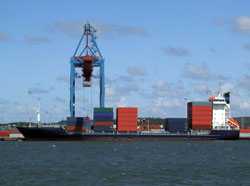Liberalising trade, impacting lives
The 'Impacts of agricultural trade liberalization between the EU and the Mediterranean countries' (EU-med agpol) project sought to estimate and describe the impacts of the liberalisation of agricultural trade in the Mediterranean region on European countries. To estimate changes in exports from the EU to Mediterranean countries, the EU-funded project relied on the widely used Common Agricultural Policy Regionalised Impact (CAPRI) model. There is potential for Europe to increase cereal, meat and milk product exports to Mediterranean countries. Estimating the impacts of changes in fruit, vegetable and olive oil imports to the EU posed a problem: standard annual models cannot be used, given that such items are widely varied or perennial and fall under different customs rules and duties. As such, researchers used quantitative analysis tools for part of the analysis, and other approaches to complement the modelling approach. For example, for processed goods a global supply chain approach was used to examine supply chain interactions. Expert panels were used for those Mediterranean countries deemed to have substantial export potential. This overall strategy aimed at obtaining the best understanding available when considering what changes might come into effect under different liberalisation scenarios. That information was then used to arrive at quantitative estimates of impacts on European producing regions. The EU-med agpol team's analyses resulted in a number of robust conclusions with regard to the potential damages to European agriculture in the event of trade liberalisation with Mediterranean countries. Impacts are expected to be small in relation to fruits, vegetables and olive oil, but certain EU regions and producers of specific products may be subject to significant impacts. On the whole, though, losses would not be that substantial. In fact, impacts on Mediterranean countries are likely to be larger than for the EU, as consumers have a lot to gain from much cheaper food prices. Another point emerging from the study was that impacts of trade liberalisation with the EU differ among the Mediterranean Partner Countries (MPCs); there are considerable differences among the southern neighbours in terms of access conditions to EU markets. The EU-med agpol consortium succeeded in providing new insights into the possible consequences, for both sides, of liberalising agricultural trade between the EU and Mediterranean countries. Enhanced understanding of the factors at play and likely outcomes has the potential to contribute to better informed initiatives in these areas of consideration.







